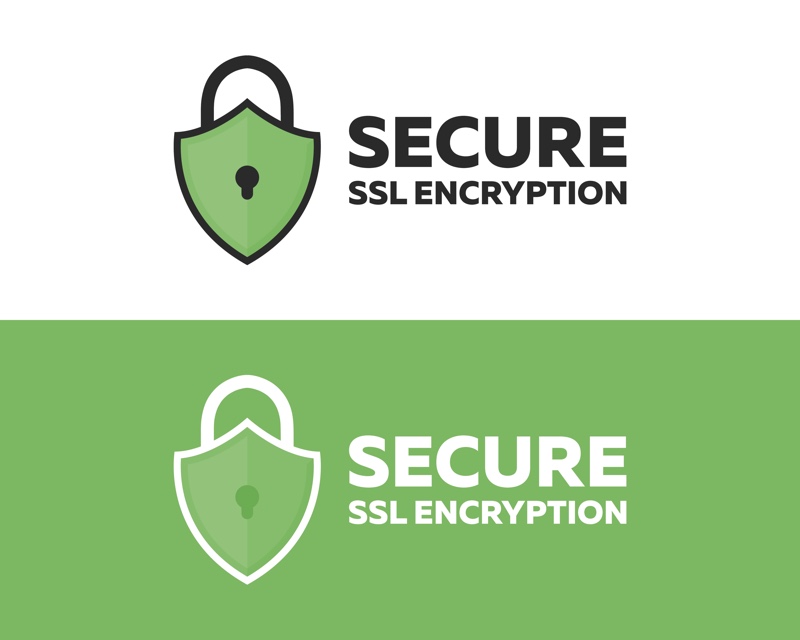When popular sites like Quora and Facebook fall prey to data breaches, how can you possibly expect your own website to remain safe from hackers? Yes, the world of internet hides all sorts of unpleasant entities in its shadowy corners. The purpose of these third-party cyber-criminals is to break into organizational domains, and steal critical data for ransom or destroy it with infected malware. Either way, being hacked spells the doom not only for the present prospects of your site but also its future stature. Recovery from data loss and affected credibility is next to impossible. So, if you wish to make your website hack-proof this year and reinforce your safety net, then implement the following tricks and feel relieved about your domain’s overall security.
SSL Encryption Against Network Threats
Online data is like a jar of jam. If a disease-carrying fly lands at the surface and starts devouring it, the whole jar can become contaminated. So, the obvious solution, in this case, is to cover the jar with an air-tight cap. An SSL certificate performs a similar function for a website. It encrypts the flow of data between the site’s server and the users’ browsers, in such a way that any sinister third party viewer will not be able to access the communication between the two. This process of HTTPS tunneling is signified by a green padlock that appears before a site’s URL, telling the users that they can trust it and explore it safely over their Charter Spectrum internet or whichever network they’ve got going on.

Login Shield Against Brute Force Attacks
A site’s login page is quite similar to a house’s main entryway. Both have restricted access set by a lock and a key that the owner possesses. It is this key that the intruders try to obtain for breaking into the house. Such a trial-and-error method of constant probing is called a brute force attack, to which many sites become a victim. So, what measure can you adopt against this cybercriminal attack on your website’s login page? Simple. Install a good security plugin, like SiteLock, which automatically bars users trying to login multiple times without success, and Bulletproof Security, which runs regular site scans for any potential vulnerabilities, etc.
Two-Step Module Against Crafty Guessers
Smart people always have a backup plan. If, for instance, a hacker guesses your username and password correctly, what other shields do you have in place to prevent further penetration? None. However, you can turn this fact around by applying a two-factor authentication setting on your login page. This module will force the hacker to go through two kinds of security screenings. First, the password, and second, the four-digit pin code that’s sent directly to your phone number. Even if the former security measure is compromised, the latter protection will surely save your site from being illegally accessed.
Regular Updating Against New Hacks
With each passing moment, hackers come up with new and improved strategies for committing cybercrime. It is up to you to stay one step ahead of the game. How can you do that? By keeping your ear to the ground for the latest security fixes and solutions released by developers. Once you get your hands on these anti-vulnerability releases, download them and ensure further protection of your site’s content, codes, software, and plugins, etc.

Parameter Queries Against SQL
If the hackers find it difficult to bypass a site’s frontline security measures, they usually find a way around it, i.e. through the underground road of codes. Yes, by injecting abnormal commands in the site’s SQL database, they can interfere with its logic and prevent its smooth functioning from the inside. What can you do to stop this? Set up parameterized queries, which limit the freedom of command execution by the outsiders through presetting of parameters in the URL. Learn to form these queries with the help of a technical developer or by following tutorials online.
Cloud Backup Against Data Loss
The era of carbon copies may have passed, yet the value of this principle remains. By creating regular backups of your entire site on a device or on a certified cloud platform, you can ensure immediate recovery in case of an attack. This measure will empower you defensively against hackers planning on doing data breaches and inducing losses to your site.

Limit File Permissions Against Open Manipulation
Another trick to save your site from being hacked is to lock down file and folder permissions of the content on your pages and root domain. This can be done by going in the settings of your hosting platform and adjusting the authority of file ‘reading’, ‘writing’ and ‘executing’. Block the hackers from unleashing any sort of trouble and then asking for undeserved ransom.
In conclusion, if you’re seeking ultimate protection for your site, then, implement the aforementioned anti-hacking measures for a successful result.
